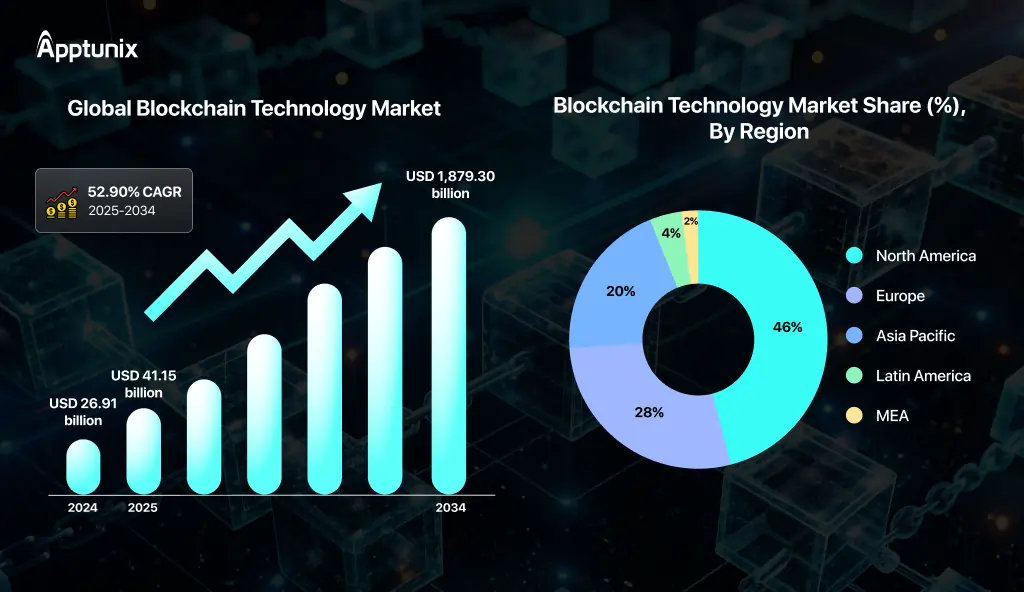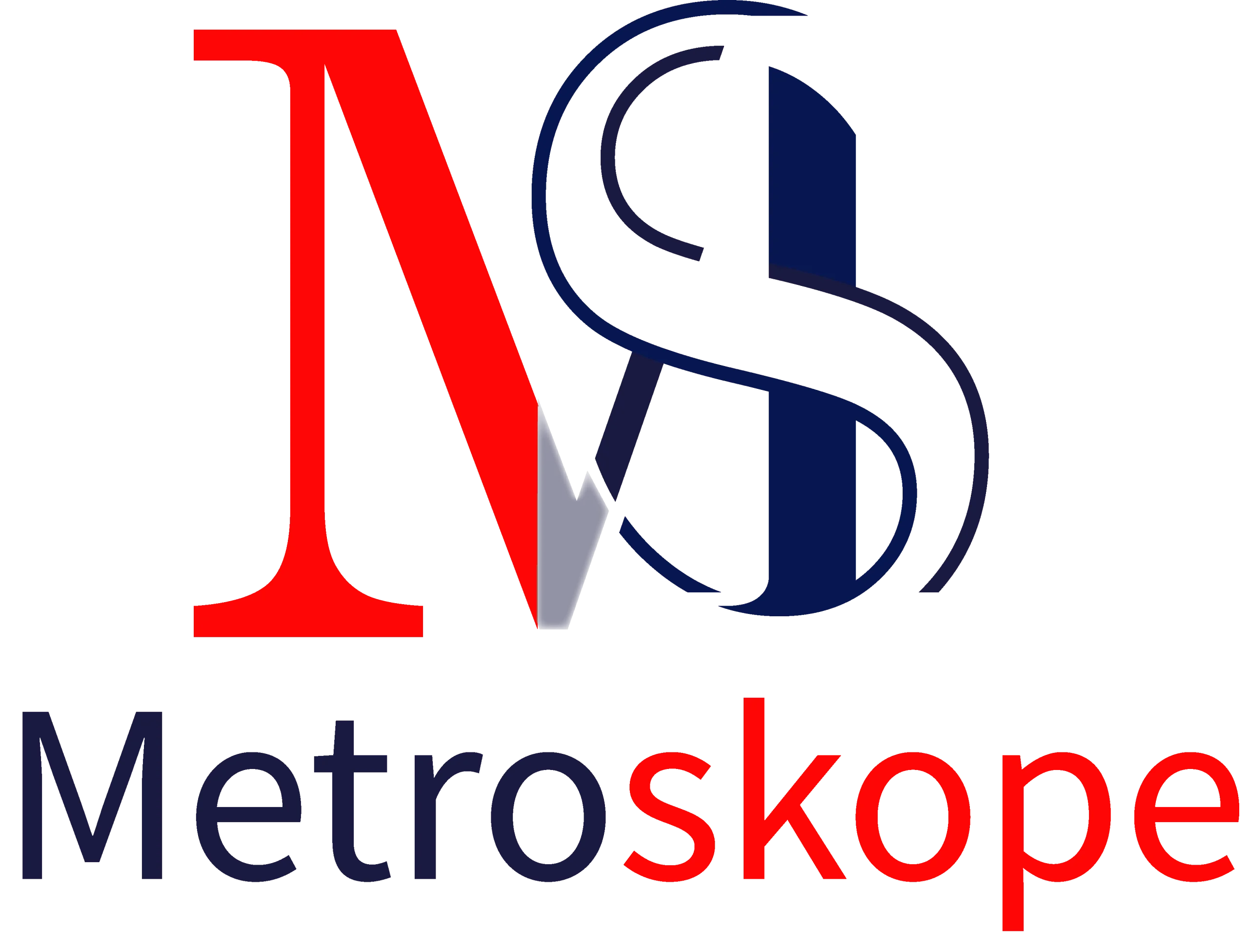Blockchain technology has evolved far beyond cryptocurrency speculation to become a transformative business tool reshaping industries worldwide.
From supply chain transparency to financial services automation, major corporations are leveraging blockchain to enhance efficiency, reduce costs, and build customer trust.
According to recent industry reports, India ranks second globally in crypto adoption and hosts over 1,200 Web3 companies, securing $564 million in funding in 2024 alone.
This comprehensive guide explores 10 leading companies—including prominent Indian enterprises—that are successfully implementing blockchain solutions across diverse sectors.
Global Technology Leaders

1. IBM: The Enterprise Blockchain Pioneer
IBM stands as the undisputed leader in enterprise blockchain adoption, establishing itself as a foundational pillar through significant contributions to the Hyperledger Fabric project.
The technology giant offers comprehensive blockchain solutions across multiple industries.
Key Implementations:
- Supply Chain Management: IBM’s blockchain platform enhances transparency, security, and traceability across global supply chains
- Food Safety: Partnership with Walmart for farm-to-store tracking systems
- Healthcare: Secure medical records management and drug supply chain verification
- Financial Services: Cross-border payments and trade finance solutions
Impact: IBM’s extensive patent portfolio in blockchain and its enterprise-grade platforms have enabled businesses across finance, supply chain, and healthcare to build distributed ledger applications with enhanced security and trust.
2. Microsoft: Azure Blockchain Ecosystem
Microsoft has positioned itself as a major force in enterprise blockchain through its Azure cloud platform, offering robust Blockchain-as-a-Service (BaaS) capabilities.
Core Offerings:
- Azure Blockchain Service: Leveraging Quorum for enterprise applications
- Azure Managed Confidential Consortium Framework: Decentralized trust applications
- Azure Confidential Ledger: Tamper-proof data storage solutions
Strategic Focus: Microsoft emphasizes integrating blockchain with existing enterprise systems, particularly in supply chain management where smart contracts increase transparency and efficiency.
3. Amazon: Cloud Infrastructure for Blockchain
Through Amazon Web Services (AWS), the e-commerce giant provides foundational infrastructure for blockchain development with services like Amazon Managed Blockchain.
Key Services:
- Amazon Managed Blockchain: Supports Hyperledger Fabric and Ethereum frameworks
- Amazon Quantum Ledger Database (QLDB): Fully managed ledger database with cryptographically verifiable transaction logs
- Scalable Blockchain Networks: Simplified creation and management for enterprises
Applications: AWS blockchain services are particularly valuable for finance and supply chain applications requiring auditable history and transparent transaction records.
Retail and Consumer Goods Giants
4. Walmart: Food Safety Revolution
Walmart has emerged as a trailblazer in applying blockchain technology to enhance supply chain transparency and food safety. Working with IBM, the retail giant implemented a comprehensive blockchain-based tracking system.
Implementation Details:
- Farm-to-Store Tracking: Complete visibility of food products throughout the supply chain
- Rapid Contamination Response: Reduced trace time from days to seconds in case of food safety issues
- Supplier Compliance: Encouraged widespread adoption among suppliers through purchasing power
Results: This initiative not only improves consumer safety but also significantly reduces costs associated with foodborne illnesses and product recalls.
5. Nestlé: Building Consumer Trust
Following the 2008 melamine contamination scandal in China that affected over 300,000 newborns, Nestlé needed to rebuild consumer trust in infant nutrition products.
Blockchain Solution:
- Partnership with Techrock: Developed a public blockchain platform integrated with mobile application
- Product Verification: Parents can verify ingredients, source, production origin, and packaging details using smartphones
- Transparency: Complete product information accessible through blockchain-verified data
Impact: The transparency enabled by blockchain helped Nestlé gain significant consumer trust and achieve the largest market share in China’s infant nutrition sector.
Automotive and Manufacturing

6. Ford: Ethical Raw Material Sourcing
Ford Motor Company faced the challenge of ensuring ethical sourcing of raw materials like cobalt for electric vehicle batteries, addressing environmental and human rights concerns.
Blockchain Initiative:
- Partnership: Collaboration with IBM and RCS Global for blockchain-based tracking platform
- Material Traceability: Tracks cobalt from certified mines through supply chain to battery manufacturing
- IoT Integration: Combines IoT data and supplier declarations to verify material provenance
Outcomes:
- Increased Consumer Trust: Verified sourcing trails for EV sustainability
- ESG Compliance: Auditable data linking suppliers with ethical mining practices
- Risk Reduction: Minimized exposure to non-compliant raw material sources
Indian Companies Leading Blockchain Adoption
7. Bajaj Finance: Streamlining Insurance Claims
Bajaj Finance, one of India’s leading NBFCs, has implemented blockchain technology to manage loan default claims with insurance providers.
Implementation:
- Real-time Verification: Blockchain ensures immediate verification of claim data
- Dispute Reduction: Eliminates arguments over entry timestamps through immutable records
- Single Source of Truth: Creates unified, tamper-proof record system
Benefits: The implementation has made the claims process seamless by providing indisputable transaction records, significantly reducing processing time and disputes.
8. Mother Dairy: Premium Product Traceability
Mother Dairy, India’s leading dairy cooperative, has adopted blockchain-powered traceability solutions developed by Spydra to track premium product lines.
Key Features:
- Real-time Tracking: Complete visibility of premium dairy products from source to consumer
- Quality Assurance: Immutable records of product quality parameters
- Consumer Confidence: Enhanced trust through transparent supply chain visibility
Impact: This blockchain implementation has helped Mother Dairy differentiate premium products and build stronger consumer trust in product authenticity and quality.
9. Reliance Industries: Comprehensive Blockchain Integration
Reliance, one of India’s largest conglomerates, is actively integrating blockchain technology across multiple business verticals to enhance efficiency and transparency.
Applications:
- Supply Chain Management: Real-time tracking of goods across retail and petrochemical divisions
- Digital Land Registries: Exploring blockchain for property management solutions
- Tokenized Loyalty Programs: Web3 solutions for customer engagement
Strategic Vision: Reliance’s blockchain initiatives focus on optimizing operations and improving consumer trust across its diverse business portfolio.
10. Mahindra Group: Automotive and Beyond
Mahindra Group has implemented blockchain solutions across its automotive and technology divisions to improve transparency and efficiency.
Use Cases:
- Vehicle Lifecycle Management: Tracking automotive components from manufacturing to end-of-life
- Pharmaceutical Exports: Ensuring compliance with international safety standards
- Supply Chain Transparency: Real-time monitoring to prevent counterfeiting and tampering
Benefits: Blockchain implementation has helped Mahindra build trust and efficiency in their global export operations, particularly important for pharmaceutical products requiring strict quality compliance.
Industry-Specific Benefits and Use Cases

Financial Services Transformation
Blockchain adoption in financial services has delivered significant operational improvements:
- Cross-border Payments: Faster, cheaper international transactions
- Trade Finance: Streamlined letter of credit processes
- Identity Verification: Enhanced KYC (Know Your Customer) procedures
- Smart Contracts: Automated loan disbursement and insurance claims
Supply Chain Revolution
Companies across industries are leveraging blockchain for supply chain optimization:
- End-to-end Traceability: Complete product journey visibility
- Counterfeit Prevention: Immutable product authentication
- Compliance Monitoring: Automated regulatory reporting
- Quality Assurance: Real-time quality parameter tracking
Healthcare Innovation
Healthcare organizations are implementing blockchain for:
- Secure Medical Records: Patient data protection and accessibility
- Drug Supply Chain: Pharmaceutical authenticity verification
- Clinical Trial Data: Transparent research collaboration
- Insurance Processing: Streamlined claim verification
The Indian Blockchain Landscape
India’s blockchain ecosystem has witnessed remarkable growth, with the country emerging as a global leader in crypto adoption. Key statistics highlight this transformation:
- 1,200+ Web3 companies operating in India
- $564 million funding secured in 2024 (109% increase from 2023)
- 8% of global full-time Web3 developers based in India
- 50% of Indian states involved in blockchain-based citizen service projects
Major Indian IT services companies like TCS, Infosys, and Tech Mahindra are integrating blockchain into their service offerings, positioning India as a key player in the global blockchain services market.
Implementation Challenges and Solutions
Common Challenges
- Regulatory Uncertainty: Evolving legal frameworks across jurisdictions
- Scalability Issues: Network performance limitations
- Integration Complexity: Connecting blockchain with legacy systems
- Skills Gap: Limited blockchain expertise in organizations
Success Strategies
- Pilot Projects: Starting with small-scale implementations
- Industry Partnerships: Collaborating with blockchain specialists
- Employee Training: Investing in blockchain education and certification
- Regulatory Compliance: Working closely with legal and compliance teams
Future Outlook: Blockchain Adoption Trends 2025
The blockchain adoption landscape continues evolving with several emerging trends:
Enterprise Focus Areas
- Central Bank Digital Currencies (CBDCs): Government-backed digital currencies
- DeFi for Enterprises: Decentralized finance solutions for businesses
- Sustainable Supply Chains: Environmental compliance tracking
- Digital Identity Solutions: Secure identity verification systems
Technology Advancements
- Interoperability: Cross-chain communication protocols
- Energy Efficiency: Sustainable consensus mechanisms
- Privacy Enhancements: Zero-knowledge proof implementations
- IoT Integration: Blockchain-powered Internet of Things solutions
Conclusion: The Blockchain Revolution Continues
The 10 companies profiled represent just the beginning of a broader blockchain transformation across industries.
From IBM’s enterprise solutions to Indian pioneers like Bajaj Finance and Mother Dairy, organizations worldwide are discovering practical applications that deliver measurable business value.
Key success factors for blockchain implementation include:
- Clear business objectives aligned with blockchain capabilities
- Strong partnerships with technology providers and industry experts
- Gradual implementation through pilot projects and phased rollouts
- Continuous learning and adaptation to emerging technologies
As blockchain technology matures and regulatory frameworks stabilize, we can expect accelerated adoption across sectors, with India playing a central role in driving innovation and implementation.
The companies featured in this analysis demonstrate that blockchain is no longer experimental technology—it’s a proven business tool delivering real-world results.
For organizations considering blockchain adoption, the evidence is clear: early movers are gaining competitive advantages through enhanced transparency, reduced costs, and improved customer trust.

